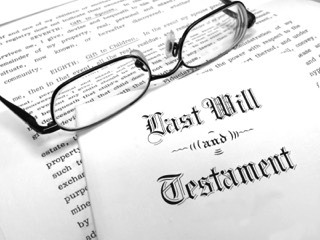Losing a loved one is a difficult and emotional experience. Settling a deceased person’s estate involves Massachusetts probate law. Different kinds of probate law can apply depending on the situation, including both uncontested and contested scenarios.
In an uncontested scenario, the executor files a petition with the court, identifies and values assets, pays debts and taxes, and distributes assets to beneficiaries. However, in a contested scenario, family members or creditors may dispute the validity of the will or the distribution of assets.
Interesting cases have helped shape Massachusetts probate law. For example, in the Estate of Berman, courts can consider extrinsic evidence when interpreting a will. The matter of the Estate of Feinberg clarified the standard for undue influence in will contests.
Whether you are dealing with an uncontested or contested scenario, it is important to work with an experienced probate attorney to ensure that the process is handled properly and efficiently and that your rights and interests are protected.
Formal Probate
Formal probate is the most common type of Massachusetts probate law. An experienced probate attorney can help ensure that the process is handled properly and efficiently. It involves filing a petition with the court to open the estate, identifying and valuing assets, paying debts and taxes, and distributing the remaining assets to beneficiaries.
Informal Probate
Informal probate is a simplified version of formal probate that can be used for smaller estates or estates where there are no disputes. An experienced probate attorney can help determine if informal probate is appropriate for your situation. It involves filing a petition with the court and submitting a sworn statement that the estate meets the requirements.
Guardianship and Conservatorship
In some cases, a person may become incapacitated and unable to manage their own affairs. A guardianship or conservatorship may be necessary. An experienced probate attorney can help protect your rights. A guardianship involves appointing someone to make personal and medical decisions, while a conservatorship involves appointing someone to manage finances.
Probate Process
The probate process involves filing a petition with the court to open the estate, identifying and valuing assets, paying debts and taxes, and distributing the remaining assets to beneficiaries. An experienced probate attorney can help ensure that the process is handled properly and efficiently, especially if there are disputes.
Will Contests
If a family member or creditor believes that a will is invalid, they may file a will contest with the court. It is important to work with an attorney who has experience in probate litigation to ensure that your rights are protected. Will contests can be emotionally charged and legally complex and can be based on a variety of grounds.
Trusts
In some cases, a person may use a trust to transfer assets to beneficiaries outside of the probate process. Trusts can be revocable or irrevocable and can be used for a variety of purposes. An experienced attorney can help choose the right type of trust and ensure that it is properly funded and administered.
Estate Taxes
Massachusetts imposes an estate tax on estates with a value over a certain threshold. An experienced attorney can help minimize the tax burden on your estate. Estate taxes can be complex and subject to change.
In summary, Massachusetts probate law can be complex and overwhelming, especially during a difficult time. An experienced probate attorney can help ensure that the process is handled properly and efficiently and that your rights and interests are protected. Contact us for legal help with probate law.

